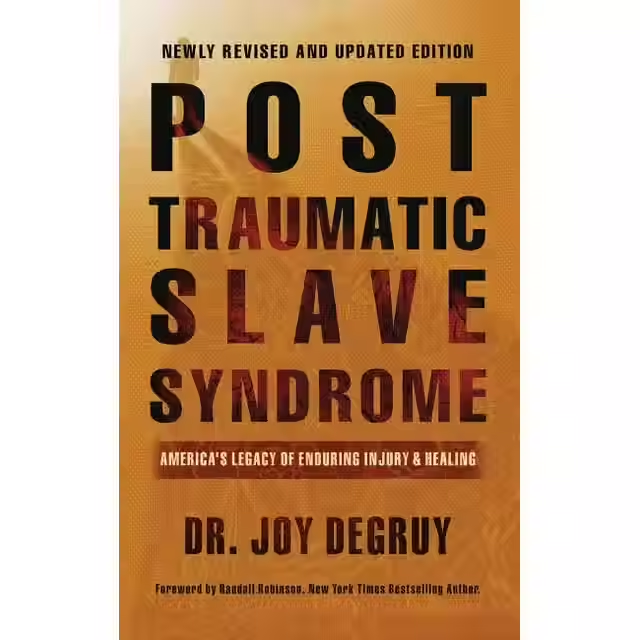

Jan 20, 2022




Disclaimer:
This article is intended to foster self and collective awareness through the lens of mental health, healing, and well-being.
It is not intended to cause harm or be misinterpreted as a means to do so. My hope is that it serves as a open call to action for collective consciousness, healing, and growth.
Hazing, Family Secrets, and the Cycle of Harm
In the wake of Caleb Wilson’s tragic death due to injuries sustained in a fraternity hazing ritual, we are left with difficult yet necessary questions:
Are Historically Black Fraternities and Sororities, also known as the Divine Nine, reinforcing a culture that glorifies hazing as a sign of loyalty and commitment? And from a family systems therapy perspective, how does the culture of hazing mirror the concept of "family secrets" as a form of internalized oppression in Black communities that unconsciously perpetuate cycles of abuse?
To explore this, we must examine the intersection of loyalty, secrecy, and generational trauma within fraternal, sororal and familial structures.
Legacy, "Black Excellence" and the Double-Edged Sword
Historical Black Fraternities and Sororities were founded in response to the exclusion of Black students from white fraternities and sororities, creating safe spaces for scholarship, leadership, and community upliftment. These organizations have produced trailblazers, activists, and cultural icons, shaping generations and the beloved concept of "Black excellence" in the black community.
Yet, within this rich legacy lies a troubling reality: hazing rituals that often escalate into humiliation, physical harm, and, in an extreme recent case, death. The question is not whether these organizations are valuable, because they are, but whether their practices sometimes reinforce a dangerous belief: that suffering is the price of belonging.
Hazing in Black Greek-letter organizations is often justified as a rite of passage, a way to build resilience, brotherhood, and sisterhood. But at what cost? When does a commitment to tradition become a commitment to harm?
Family Systems, Secrets, and the Culture of Protection
From a family systems therapy perspective, hazing bears a striking resemblance to the unspoken rules governing many Black families: "What happens in this house, stays in this house." This silence, often born out of survival in a racist society, has also served as a shield for generational harm.
Much like in abusive family dynamics, hazing survivors are often expected to normalize their pain, convinced that speaking out is an act of betrayal. This mirrors the way some Black families protect abusive members rather than expose the truth, fearing that public acknowledgment will bring shame or further harm to the family unit.
Just as children in toxic family systems may grow up to unconsciously repeat cycles of abuse, hazing perpetuates a cycle where the victim can become the perpetrator. A pledge who is beaten and degraded may eventually become the one inflicting harm, rationalizing it as tradition rather than trauma.
Shifting from Secrecy to Accountability
If we view hazing through the lens of intergenerational trauma, then breaking the cycle requires the same interventions used in family healing:
1. Acknowledgment Over Denial – Organizations must openly confront the harm caused by hazing rather than dismissing it as isolated incidents or the fault of “a few bad apples.” Just as families must admit when abuse has occurred, fraternities and sororities must take accountability.
2. Reevaluating "Tough Love" – The belief that suffering builds strength must be challenged, both in fraternal/sororal spaces and in Black family culture. Resilience does not require abuse, and commitment should not demand pain.
Author's Note:
In family therapy, we recognize that healthy struggle and challenge are essential for growth and resilience throughout lifespan development. When appropriately framed and supported, life challenges can enhance learning, critical thinking, emotional regulation, and problem-solving skills. The key distinction between healthy and harmful challenges and/or adversity lies in the presence of support, the ability to recover, and the opportunity for constructive learning.
Healthy forms of challenge in the developmental process should cultivate self-awareness and resilience, empowering individuals to recognize their innate capacity for growth and change rather than instilling shame or helplessness.
Murry, V. M., Nyanamba, J. M., Hanebutt, R., Debreaux, M., Gastineau, K. A., Goodwin, A. K., & Narisetti, L. (2023). Critical examination of resilience and resistance in African American families: Adaptive capacities to navigate toxic oppressive upstream waters. Development and Psychopathology, 35(5), 2113–2131. https://doi.org/10.1017/s0954579423001037
3. A New Definition of Loyalty – True brotherhood and sisterhood should be defined by protection and care, not endurance of harm. Just as healthy families prioritize the well-being of their members over secrecy, how can Black Greek-letter organizations better ensure their bonds are forged through trust and not trauma.
4. Healing Conversations – Black communities and fraternal/sororal organizations alike would benefit from creating intentional spaces for open dialogue about hazing, generational trauma, and the unspoken pain that fuels harmful traditions. By addressing how internalized oppression reinforces intergenerational trauma, we can move beyond surface-level trainings designed merely to waive liability and instead foster real correction, connection, and accountability.
Loyalty Without Violence
Caleb Wilson’s death is not just a tragedy, it is a wake-up call. As Black Greek-letter organizations continue their mission of leadership and upliftment, they should earnestly acknowledge and release organizational practices rooted in suffering and secrecy. Leadership must be honest about both its direct and indirect role in promoting these ideologies, whether by glorifying the idea of being 'made' to younger generations in private conversations or by its practice of social elitism and turning an intentional blind eye to wrongdoing. Just as we fight to protect Black children from abuse in their homes and experiences of systemic oppression, we must also fight to protect young men and women from harm disguised as loyalty.
Loyalty should never require silence. Commitment should never demand pain. And tradition should never come at the cost of life.
Author's Note
Caleb’s passing is a heartbreaking reminder of the profound responsibility that organizations, institutions, and communities have in safeguarding the lives of those who trust them. His absence will be felt in every unfulfilled dream, every family gathering missing his laughter, and every moment that should have been his to experience.
To the members of Black Greek-letter organizations, I urge you to imagine Caleb Wilson as your own child. Picture the heartbreak of losing him, only to witness these organizations continue with a "business as usual" mindset which seems to prioritize the brand over the collective loss and hurt.
Ask yourselves, how are Black Greek-letter organizations upholding the vision and values of their Founders from within? How can we better exemplify 'Black Excellence' not just through personal or collective achievement, but through collective-awareness and collective accountability?
To Caleb's parents and loved ones, your pain is not forgotten, and your grief is not overlooked. The weight of your loss is immeasurable, and the road ahead will be long and difficult. May you find support, love, and strength in the midst of this devastation. And may Caleb’s name not only be remembered in sorrow but in the call for change - so that no other family has to endure such an unbearable loss.
Fanicy Sears, LPC-S, LMFT, NCC
Clinical Director
eMotion Therapy, LLC
Below are a few book recommendations for those interested in learning more about intergenerational trauma in black family systems and internalized oppression









Comments